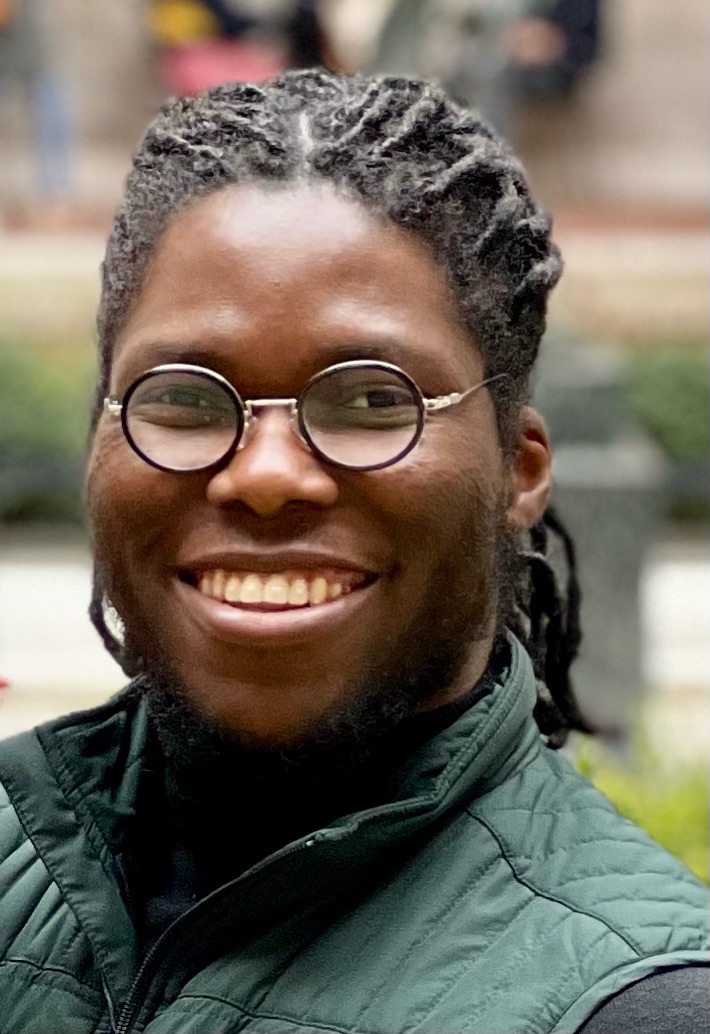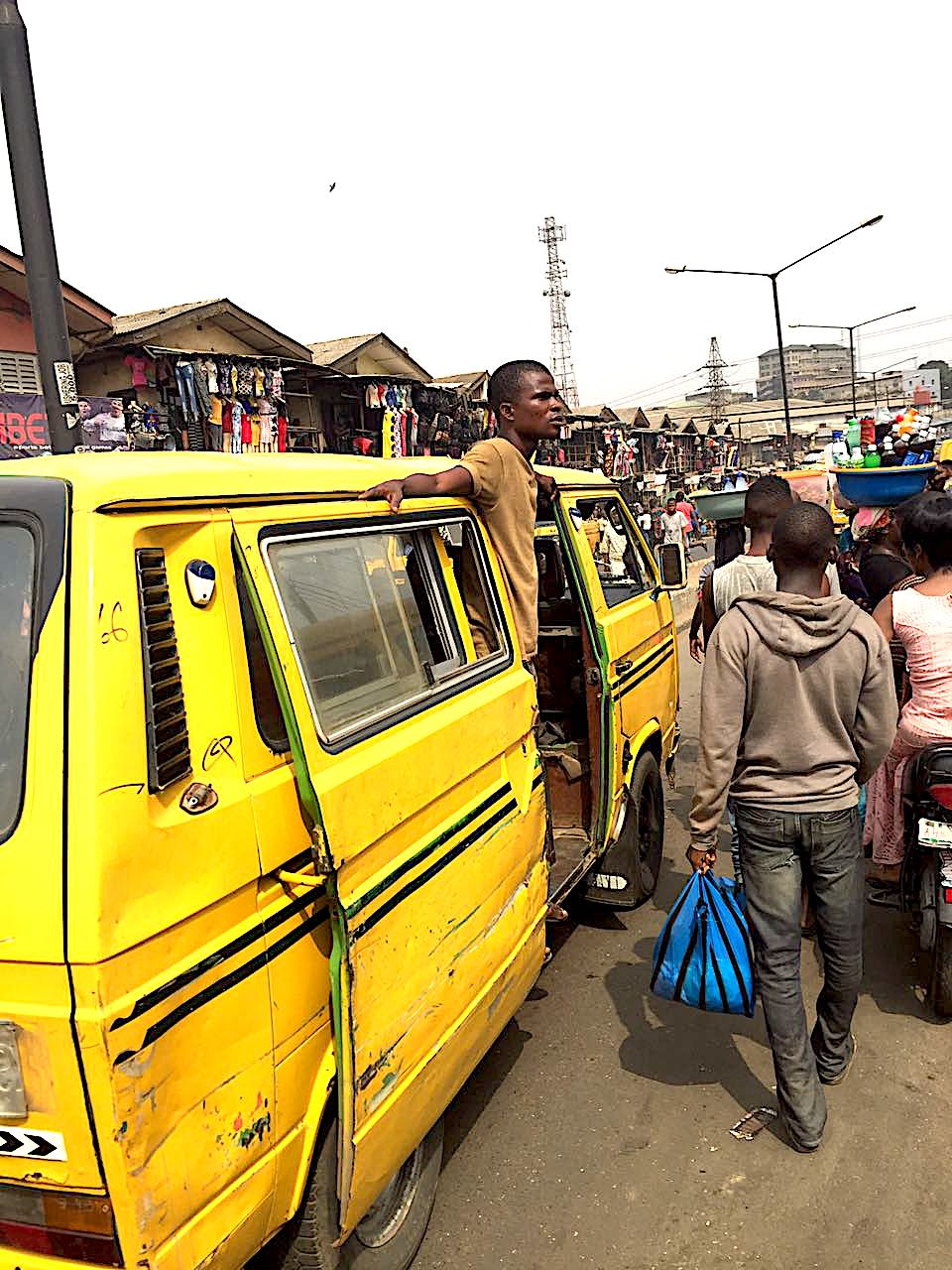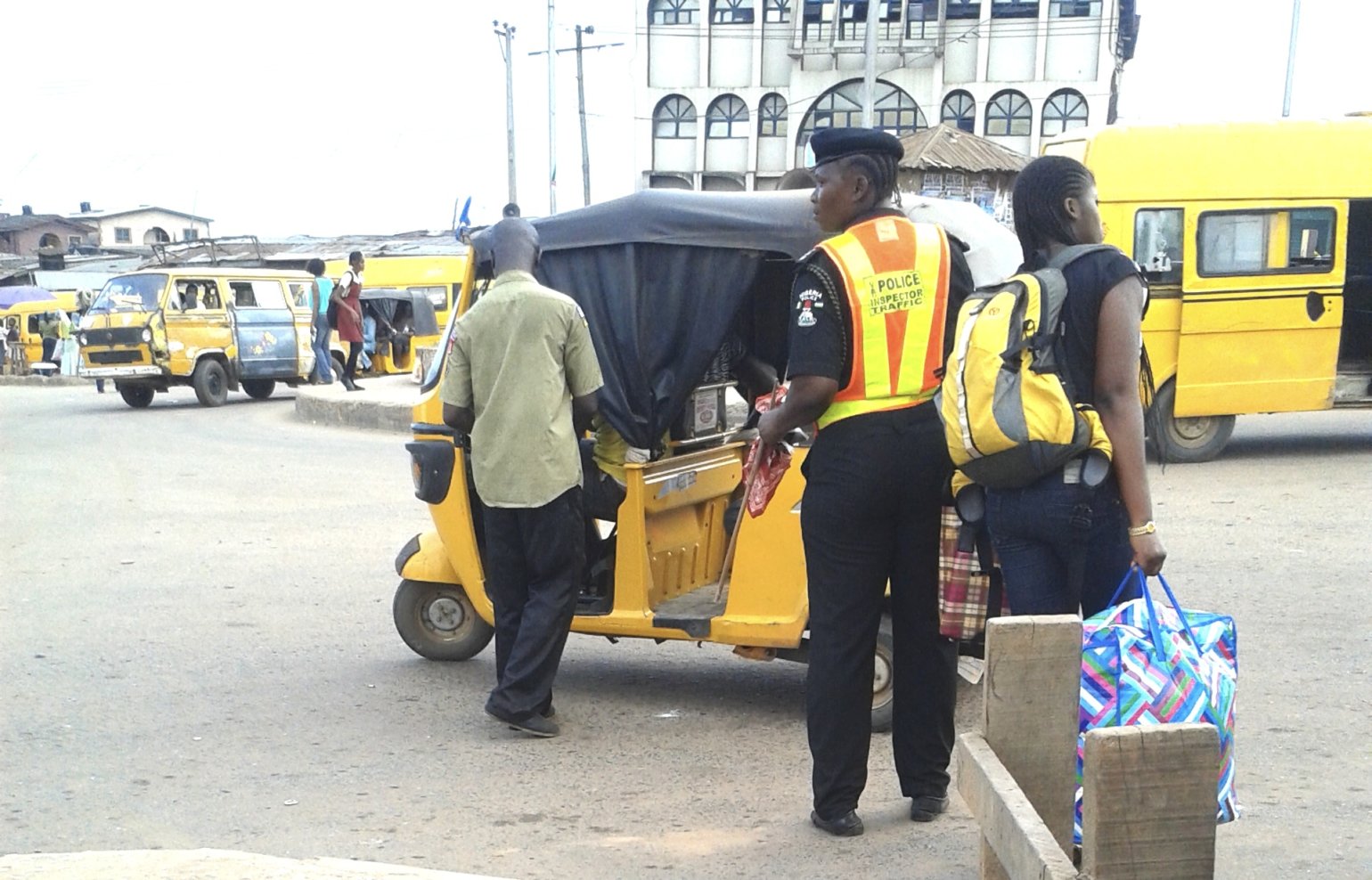The DSA-OUP Book Series: Meet the author Daniel Agbiboa
Did you know that the DSA, alongside Oxford University Press, publishes a number of single authored monographs every year? The DSA-OUP book series: Critical Frontiers of Theory, Research and Practice in International Development Studies aims to promote critical scholarship in development studies as an interdisciplinary and applied field.
The process of putting together and publishing a book might appear daunting. We’ll be sharing a number of blog posts to make that less so, and showcases that indeed, anyone from the DSA community can, and should, consider publishing via this route. Expect interviews with DSA-OUP book series authors, how-tos, spotlights on different topics, and news and updates from the series editors.
In the second instalment of this collection of posts, we welcome Daniel Agbiboa, Assistant Professor of African and African American Studies at Harvard University and author of the recently published They Eat Our Sweat: Transport Labor, Corruption, and Everyday Survival in Urban Nigeria (Oxford University Press, 2022). Here, Daniel, tells us about the two-years of ethnographic research, including working as an informal bus conductor in Lagos, culminating in the book published via the DSA-OUP series.
Q. Can you tell us a little bit about your early education, and what events or influences put you on the path to taking an MPhil in Development Studies at the University of Cambridge as a Cecil Renaud Scholar?

A. My post-secondary education started in St. Joseph’s Theological Institute in South Africa, where I completed a Bachelor of Arts in Philosophy as part of my training to become a Catholic priest at the time. The Jesuits where my entry point into education and inculcated in me a love for learning. But over time, it became clear to me that it was the educational vocation that inspired me, not so much the other commitments associated with being an ordained priest. Hence, my path led me away from the priesthood to the University of KwaZulu-Natal, where I completed a BSC Hons in Government, Business, and Ethics, before reading for an MA in International Relations.
Upon graduation, I was ready for a new challenge. My selection for the Cecil Renaud Overseas Award could not have been more pivotal. It gave me the opportunity to study for an MPhil at any university in Euro-America. I chose to do Development Studies at the University of Cambridge. During this time, I was resident at Magdalene College, where my hero, Nelson Mandela, was an Honorary Fellow.
Given my eclectic background, I felt most at home in Development Studies because of its academically pluralist sweep. Having said that, I must admit that I have always had a bias for ethnographic methods because of their capacity to make the familiar strange and the strange familiar—even better, to understand their interpenetration.
After Cambridge, I started my PhD in Sociology at the Australian National University before returning to the UK after only a year, to the University of Oxford, where I read for a DPhil in International Development under the supervision of Professor Abdul Raufu Mustapha.
Sadly, Raufu passed away shortly after my graduation. I would say he had the biggest influence on my career trajectory, especially his humility, accessible style, and intellectual courage. Above all, Raufu’s influence across broad fields of study, ranging from agrarian studies to identity politics, and peace and conflict, was only possible because of his own interdisciplinary yet critical approach.
Q. For your book, you undertook two years of ethnographic research, including working as an informal bus conductor in Lagos. Can you tell us about this experience, and how it informed your understanding of corruption and everyday survival in Nigeria?
A. Everyday corruption in Nigeria is probably most visible in the shadowy informal transport sector, especially in the precarious relationships between bus drivers, conductors, and passengers on the one hand, and the National Union of Road Transport Workers (NURTW) and law enforcement agencies on the other hand.
To study everyday corruption in a megalopolis like Lagos, Africa’s largest city, it was important for me to immerse myself in the practice of city life, and to experience how people encounter, navigate, and subvert corruption and coercion in their workaday world. And there was no better way to do that than to become a minibus (danfo) conductor, one of the most stigmatized occupations in Nigeria. In fact, children who grow up in Lagos are often warned by their parents against ending up as a bus conductor.

I grappled with the sheer demands on conductors, especially the ability to multitask on the go: holding money, counting change, opening and closing the poorly oiled sliding doors, attending to passengers, and watching the driver’s blind spot—many danfos are without functioning gadgets. Amid all of this, I had to be alert to potential passengers along the road; to discern when to hang from the door and scan for passengers and when to shut the door and squeeze in to avoid police fines; and the tactic of “no shaking” (courage) in the face of menacing shouts of owoo da? (“Where is your money”) by the tax-collecting agberos. I also developed a thick skin in the face of the insults from passengers with fixed notions of conductors as con-ductors.
In short, throughout my fieldwork in Lagos, I was constantly aware of my precarious positionality as a researcher navigating an unpredictable and risky terrain, as well as the social stigma attached to the “dirty work” of conducting. The space occupied and navigated by the conductor—the motor park and bus terminal—are popularly seen as a cesspit of corruption, violence, drug dealing, prostitution, and magic. These are “non-spaces” where collective fear has become a way of life. The bus conductor embodies all that is wrong with the city. He—and bus conductors are exclusively men—is a sacrificial lamb onto which anyone can displace their daily frustrations with a dysfunctional urban system.
At the same time, being a bus conductor was perhaps the most effective, if dangerous, way to experience first-hand the extortion and brutality of the NURTW—the most politicised and violent trade union in Nigeria. The fact that many conductors have been shot dead for resisting union or police demands for bribes reinforces the ephemerality of life in the informal transport sector. A common sight at most checkpoints in Lagos is that of a police officer poking the muzzle of his AK-47 into a conductor’s eyes for refusing to supply the exact cash bribes, or motor park touts (agberos) attacking a conductor with a glass bottle for refusing to “settle” his infinite union dues.
As I note in the book, in two months, I witnessed first-hand the violent deaths of four conductors at the hands of agberos due to disputes over the illegal owo load (“loading fee”). The union, which operates like a mafia, maintains control of transit spaces, in part, through its opacity. This explains why, despite its enormous political clout, the union has managed to escape scholarly gaze. But, as I ask in the book, does one abandon urgent research simply because a predatory trade union and a complicit state government do not want their extortion racket to be documented and exposed?
For me, being a bus conductor was a process of learning by doing, consistent with the “apprenticeship” approach that emphasizes the participant dimension of fieldwork, turning researchers into “observing participants” more than “participant observers.” My positionality as a bus conductor raised the kind of self-reflective questions that Laura Routley encountered:
“Was I an observer or a participant? Was I working with them, or studying them?”
These are the kind of boundary-crossing questions that I believe ethnography is well placed to negotiate. I believe that participant observation is most authentic and reliable when the researcher can go unobserved, because it provides much-needed access to “naturally” unfolding events and to what anthropologist Mariane Ferme calls “the underneath of things.” This is particularly true for a phenomenon like corruption which is located in “gray zones” between the legal and the illegal, embedded in ordinary forms of sociability, and shaped by violent and shifting mutualities between formal, informal, and semi-formal actors.
Q. How did you navigate the journey, from having collected your ethnographic data to putting it together into a book manuscript? What were the main challenges and difficulties you encountered along the way?
A. One of the helpful things I did during fieldwork was to transcribe and analyse my ethnographic data after each day of interviews and observations. This approach allowed me to blur the lines between data collection and analysis and ensured that critical gaps in my data could be identified and addressed while I was still “in the field.”
One of the main challenges I encountered in organizing my field data into a book manuscript was deciding how to stake out the boundaries of the argument that I wanted to make and stretch my ethnographic data into a book-length argument. The process of writing an article is not coextensive with writing a book, and I learnt that the hard way. With a book project, you must stretch and sustain the argument over an extended time. Stamina is everything.
Having spent a year on the ground in Lagos conducting research on corruption and survival, I had a wealth of data about almost everything, and nothing. This is what the study of corruption does to you. It pulls you into the realm of the spectacular and the spectral, the everywhere and the nowhere. In fact, as far as I know, among the roughly 520 languages spoken in Nigeria, there is no direct translation for the word corruption. As anthropologist M.G. Smith found in the early 1960s, northern Nigerians use various phrases to explain a range of political conditions related to corruption, ranging from zalunchi/zamba (oppression/swindling) to yi gaisuwa (making greetings or gifts), and manafunci (treachery and breaking of political agreements).
So, the challenge was how to make sense of a phenomenon that was simultaneously here and elsewhere. There was also an ethical challenge: the small matter of how to document the extortion racket of a mafia-like union, and the ambivalent complicity of a Nigeria police and state government that had the capacity to make people disappear—shades of what the iconic Nigerian musician and activist Fela Kuti calls “government magic.”
Q. Your book mounts a critique of overly simplistic and macro-oriented accounts of corruption, both in Africa and the global South more broadly. Could you expand on this for us? What’s missing from or wrong with these accounts?
A. One of the main goals of They Eat Our Sweat was to understand corruption as a complex, both practically and discursively. In so doing, I wanted to break with normative analytical models based on comparative macro-level econometric data. I wanted to challenge the continued reliance on perception-based data and the conflation of data aggregation from various surveys into one figure used in international corruption barometers such as Transparency International’s Corruption Perception Index (CPI). I wanted to challenge the dominant paradigm of simplifying corruption into “petty” and “grand” and “private” and “public,” and instead show how they interpenetrate and shape each other. The problem with an evaluation such as the CPI is that corruption varies so much from country to country, no single number can accurately compare the wide range of forms that corruption takes from one country to the next. Can a polyvalent phenomenon such as corruption be measured at all, let alone reduced to a single number?

My book argues that a proper understanding of corruption must first locate it within the local contexts out of which it emerges and with which it routinely interacts. Corruption may be a global phenomenon, but it is intelligible only in its local context. To grasp corruption, one must attend to the underlying narrative and interpretative frames that ordinary people deploy to negotiate power relationships and make meaning of life’s events.
Why? Because corrupt practices are extremely difficult to extricate from other social behaviours due to their embeddedness in wider everyday practices that are not corrupt sensu stricto but tend to facilitate and legitimize corruption. This is why ethnography was my favoured approach because it naturally develops through interactions with local populations, which evolve into the building of mutual trust, reciprocity, and a deeper understanding of one’s participant observations.
Q. Contra to these sorts of accounts, the main argument in your book is that corruption is not rooted in Nigerian culture, but is shaped by the struggle for survival. What are the implications of this argument for the way we think and talk about the politics and governance of everyday life in a city like Lagos?
A. There is a common tendency in Nigeria to see corruption as a way of life, so much so that we routinely speak about a “culture of” corruption. A core aim of They Eat Our Sweat was to go beyond culturalist explanations of corruption by showing that corruption is not embedded in Nigerian culture but is in fact shaped by popular efforts to manage precarious lives.
Which is to say, the struggle for economic survival compels many average Nigerians, especially informal workers, to participate in the reproduction of the transgressive system they denounce. The implication is that ordinary citizens are not passive in the face of corruption but instead use it in a variety of ways to minimize risk and impose predictability on their precarious labour. The commercial driver, for example, is not just a victim; invariably, he is a participant in a state-society “dance.”
While corruption saturates the political economies of African countries, it is not somehow organic to African culture. Nigeria is as much a culture against corruption as it is about a culture of corruption. So, my point was to show that corruption is neither rooted in primordial traditional culture nor is it a desirable feature of everyday life. If by culture we mean the general moral orientation of the population in question, then most Nigerians are against rather than in support of corruption.
Q. Lastly, what advice do you have for early career scholars aspiring towards their first book publication?
A. To these scholars I would say, find yourself a publisher that believes in the value of your work as much as you do. I was lucky to have wonderful colleagues at the OUP-DSA series who worked patiently with me to sharpen, expand, and complement my central argument.
The other advice is to not sit on that manuscript and keep procrastinating. Sometimes, especially when it’s your first book, you want it to be “perfect”—whatever that is. But there comes a saturation point in your writing when you know—or at least, feel—that no other new information is going to massively change or reconfigure the basic thrust of your work. That is probably the best time to send it out and get people to feel as excited (or critical) about the draft as you do.
Interview by Ben Radley, DSA Council and Publications Committee Member.
